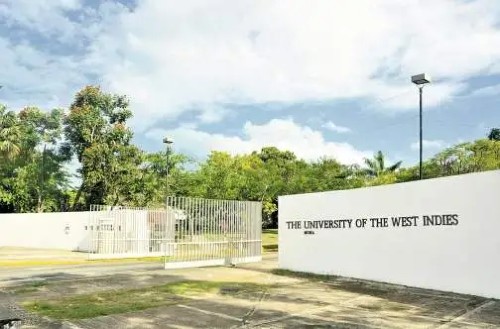KINGSTON, Jamaica – The University of the West Indies (UWI) says it has no intention to increase tuition fees as it announced new initiatives to fund the operations of the region’s main tertiary institution.
 The UWI’s executive management team earlier this week held a planning retreat aimed at rolling out a new operational plan to deal with the financial challenges facing the institution as a result of shortfalls in expected revenues.
The UWI’s executive management team earlier this week held a planning retreat aimed at rolling out a new operational plan to deal with the financial challenges facing the institution as a result of shortfalls in expected revenues.
UWI Vice-Chancellor, Sir Hilary Beckles, speaking to reporters that the regional governments will no longer be required to meet 80 per cent of the operational costs of the University, which has campuses in Barbados, Jamaica, Trinidad and Tobago, and Antigua and Barbuda.
He told reporters Thursday during a Zoom conference that the new initiative is part of the plans to transform the UWI into a hybrid university with greater financial efficiency over the course of the next five years.
Sir Hilary said the adjustment is one of the two fundamental changes being implemented at the UWI, coming out of Wednesday’s retreat.
“We have come to the end of what has been described as three decades of deficit funding within the university environment,” the Vice-Chancellor said, adding “we have now decided to shift from a tradition decades old of deficit financing into a balanced budget approach.
“We will now seek to have the governments and the university counsellor approve our budgets and we will function within the parameters of those budgets,” he said, adding that while it took an estimated US$300 million to finance the UWI annually, there was an annual shortfall of between US$30 million and US$40 million.
“So, long as our investors, our governments especially, remain true to the budgets and what they approve is what they invest, then we are going to be addressing the systemic deficit within our system in that way,” Sir Hilary said, adding that the second major change would be the development of an entrepreneurial dimension to the UWI, with a “very aggressive commercial and self-financing approach.
“The reason why this is so important is because on the one hand we are a public university, we are a public developmental instrument of the people of the Caribbean, we are not driven by the profit motive, we are not a business enterprise, but we must be managed and we must conduct our affairs in a business-like fashion.
“However, we have now realized that in pursuit of self-financing, self-sustaining activities, that we must have a robust and aggressive business dimension, a commercial dimension, because the university now has to enter into a stakeholder network as an enterprise of business. So, developing the business aspect of the university will in fact create what is now going to be a hybrid university and this is a fundamental transition at this moment.”
Sir Hilary said each campus would be given the responsibility, under the guidance of its principal, to implement commercially viable projects and initiatives.
But he told reporters that there were plans to increase tuition fees even as he admitted that the university would review the pricing of programs offered.
“At the moment, our students are required to pay 20 per cent of the costs of their academic programs. The tuition fees at the UWI at the moment amount to about 15 per cent of the university’s cash income.
“We do not intend to pursue a policy of increasing fees within the context of this pandemic and the challenges. However, what we do have to do is to look at how we price individual programs, how we price programs across faculties, how we price programs across disciplines.
“We do hope that by looking at the area of academic product pricing that we could bring that contribution to the budget from around 15 per cent to maybe 20 per cent. So, we’re not hoping to do so in the context of fee increases, I want to make that perfectly clear, but we will look at the issue of how we cost our programs,” Sir Hilary said.


